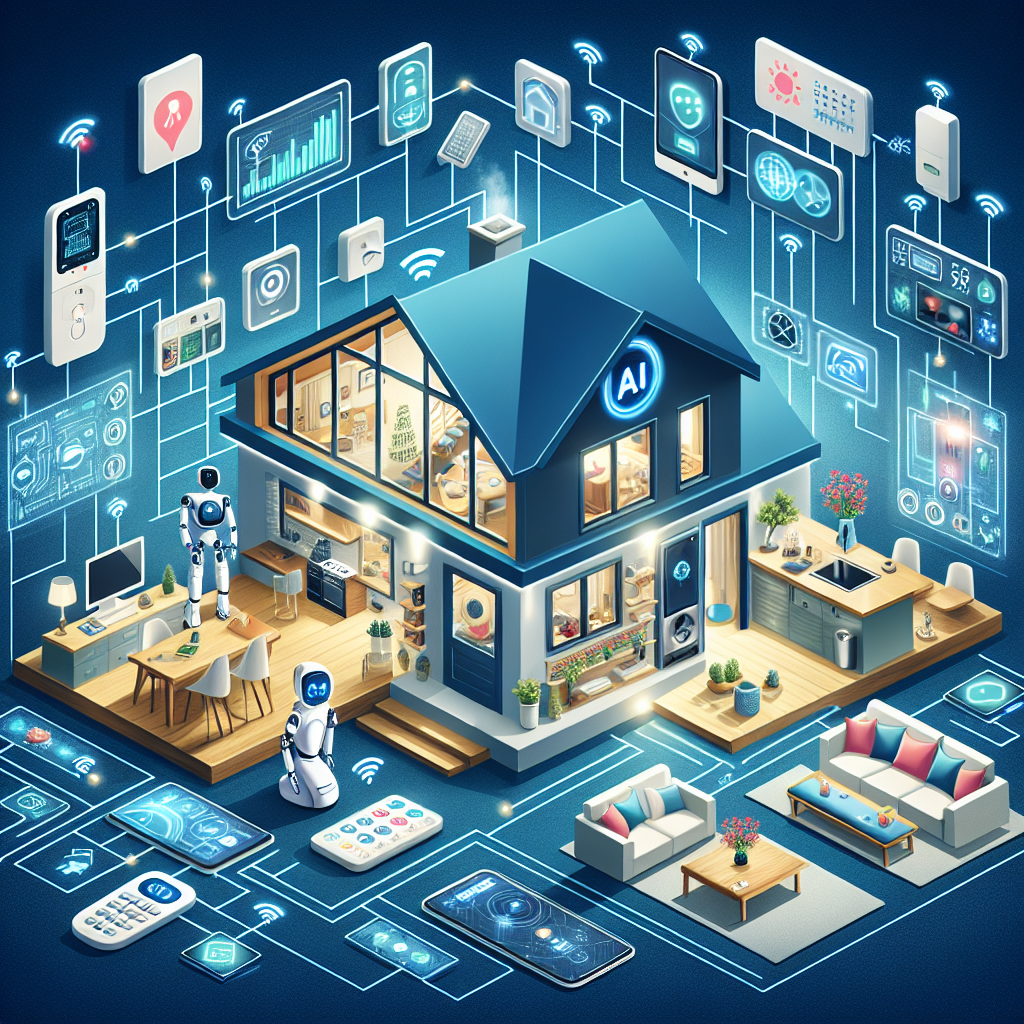In recent years, advancements in artificial intelligence (AI) technology have revolutionized the way we live and interact with our surroundings. One of the most significant applications of AI is in smart home technology, where automated systems can streamline daily tasks and improve overall quality of life. AI automation in smart homes has the potential to enhance convenience, efficiency, and security, making our living spaces more comfortable and functional than ever before.
One of the key benefits of AI automation in smart homes is the ability to customize and optimize various aspects of home living. AI-powered systems can learn user preferences and patterns over time, adjusting settings and routines to suit individual needs. For example, a smart thermostat can learn when residents are home and adjust the temperature accordingly, saving energy and ensuring comfort. Similarly, AI-powered lighting systems can adjust brightness and color temperature based on time of day and user preferences, creating a personalized lighting experience.
Another important role of AI automation in smart homes is in enhancing security and safety measures. AI-powered surveillance systems can analyze video feeds in real-time, detecting unusual activity and alerting homeowners to potential threats. Smart locks can be integrated with AI technology to recognize authorized users and grant access accordingly, reducing the risk of break-ins and unauthorized entry. In the event of an emergency, AI-powered systems can automatically contact emergency services and provide vital information to first responders, ensuring a quick and effective response.
AI automation in smart homes also plays a crucial role in improving energy efficiency and sustainability. By analyzing data from sensors and devices throughout the home, AI systems can identify patterns of energy consumption and suggest ways to reduce waste. For example, AI-powered energy management systems can adjust lighting, heating, and cooling settings to minimize energy usage during peak hours, saving money and reducing carbon footprint. Additionally, AI automation can integrate renewable energy sources such as solar panels and battery storage systems, further reducing reliance on traditional energy sources and promoting sustainability.
In addition to enhancing convenience, security, and sustainability, AI automation in smart homes can also improve overall quality of life for residents. By automating routine tasks such as cleaning, cooking, and grocery shopping, AI-powered systems can free up time and energy for more meaningful activities. For example, a smart home assistant powered by AI technology can help users schedule appointments, set reminders, and even provide personalized recommendations based on individual preferences. This level of personalization and customization can significantly enhance the living experience and promote a sense of well-being and contentment.
As AI technology continues to evolve and improve, the possibilities for automation in smart homes are virtually limitless. From voice-activated assistants to predictive maintenance systems, AI-powered devices and services are transforming the way we interact with our living spaces. However, with these advancements come questions and concerns about privacy, security, and reliability. To address these issues, it’s important for homeowners to understand the role of AI automation in smart home technology and how to make informed decisions about implementing these systems in their homes.
FAQs
Q: How does AI automation in smart homes affect privacy?
A: AI automation in smart homes can raise concerns about privacy, as these systems collect and analyze data from various sensors and devices throughout the home. To protect privacy, homeowners should carefully review privacy policies and settings for AI-powered devices, and consider implementing additional security measures such as encryption and secure network connections.
Q: Can AI automation in smart homes be hacked?
A: Like any connected device, AI-powered systems in smart homes can be vulnerable to hacking if not properly secured. Homeowners should regularly update software and firmware for AI devices, use strong passwords, and monitor network traffic for unusual activity to reduce the risk of hacking and unauthorized access.
Q: How reliable are AI-powered systems in smart homes?
A: The reliability of AI-powered systems in smart homes depends on various factors, including the quality of the technology, the accuracy of data inputs, and the stability of network connections. Homeowners should research and choose reputable brands and products with a track record of reliability and performance to ensure a positive user experience.
Q: What are the potential drawbacks of AI automation in smart homes?
A: While AI automation in smart homes offers numerous benefits, there are potential drawbacks to consider, such as cost, complexity, and compatibility issues. Homeowners should carefully evaluate their needs and preferences before investing in AI-powered systems, and seek professional advice if necessary to ensure a successful implementation.
Q: How can I get started with AI automation in my smart home?
A: To get started with AI automation in your smart home, consider conducting a home assessment to identify areas where automation could improve efficiency and convenience. Research available products and services that align with your needs and budget, and consult with experts in smart home technology to explore options for integrating AI-powered systems into your living space.

